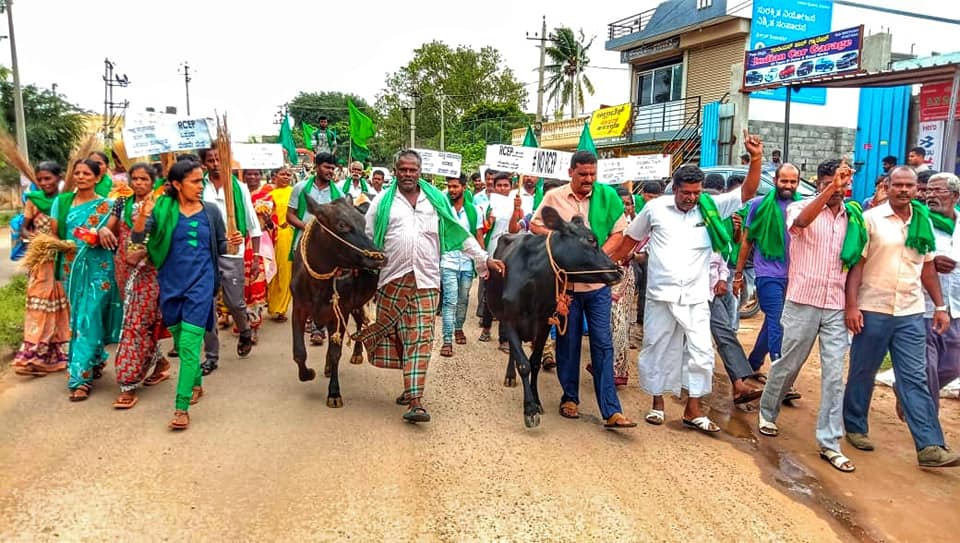In the history of people’s resistance against free trade agreements, 4 November 2019 is a day to remember. On this day, bowing to immense pressure from peasants, trade unions and rural communities, India’s central government decided to pull the plug on its participation in the Regional Comprehensive Economic Partnership (RCEP), intended to become the largest free trade area in the world. The announcement, made at the ASEAN summit in Bangkok, has implications for free trade negotiations in the entire region and puts a fork in the wheels of unifying the Asian market – a project clearly favouring the interests of agribusiness and transnational corporations.
While countries such as Japan, New Zealand and Australia are making every effort to convince India to come back to the negotiating table, whether they will succeed is not clear. For now, Delhi’s decision has provided immense relief to millions of small-scale food producers and rural workers in India.
So how did a government that is overtly neoliberal, capitalist and with visible authoritarian traits end up bowing to the pressure of farmers and workers? To understand that, we need to understand the decade that just went past us.
This is an excerpt from an article jointly published by GRAIN and Via Campesina South Asia region. To read the full article, click here

